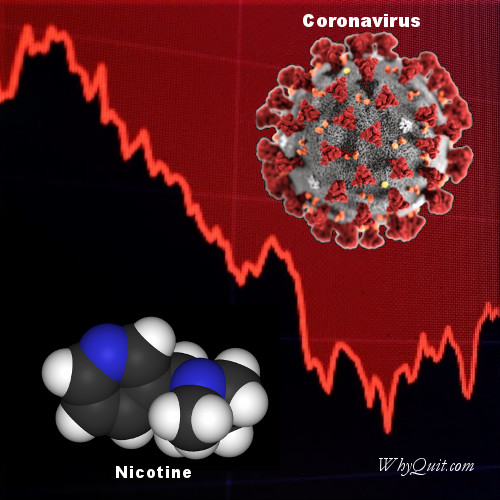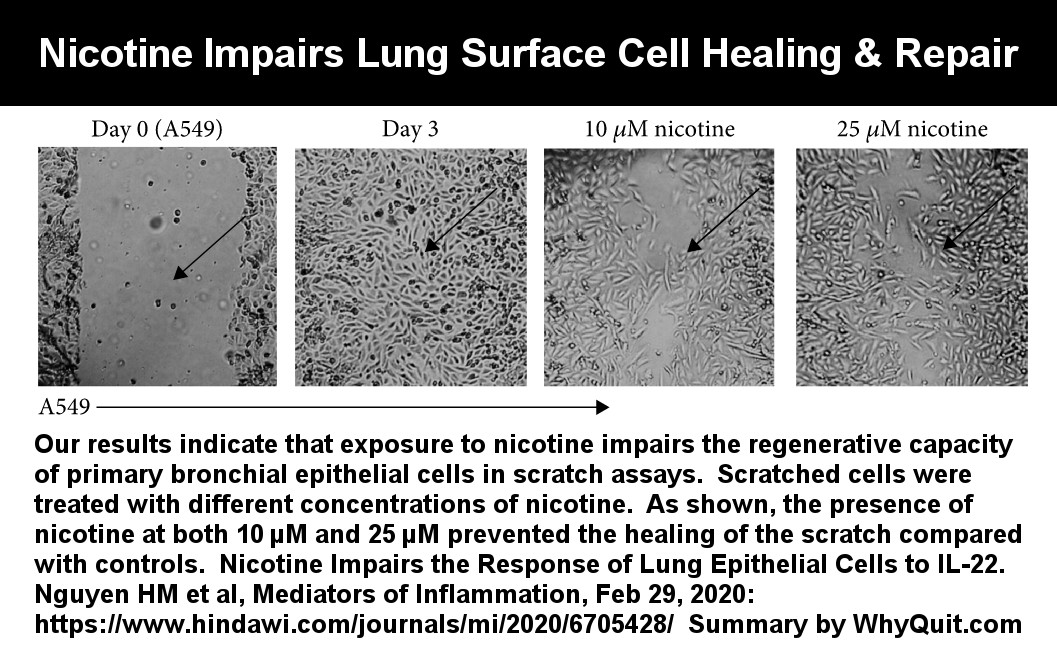
The time for isolation from nicotine is now
Compelling reasons to quit smoking or vaping during coronavirus self-isolation or lockdown.

Think like a germ. What are the consequences of raising germ-filled fingers to your mouth and inhaling deeply, countless times daily?
Prior to COVID-19, smokers were "5 times more likely to develop laboratory-confirmed influenza than non-smokers." Journal of Infection, Dec. 2019.
And, after inhaling deeply, what about nearby friends or loved ones? Once infected, like a sneeze, does exhaled smoke or vapor broadcast the virus as an aerosol?
Researchers used nebulizers to spray and test the novel human coronavirus as an aerosol. They found that the virus remained suspended in the air and alive throughout their entire 3 hour experiment, that it survived up to a day on cardboard surfaces, and up to 3 days on plastic or stainless steel. New England Journal of Medicine, March 2020.
Prior to COVID-19, smokers catching the flu had 50 percent greater odds of being hospitalized and were twice as likely to end-up in intensive care (ICU). Epidemiology, May 2019.
Five studies have reported the smoking status of patients infected with COVID-19. "Notably, in the largest study that assessed severity, there were higher percentages of current and former smokers among patients that needed ICU support, mechanical ventilation or who had died, and a higher percentage of smokers among the severe cases."
"We calculate that the smokers were 1.4 times more likely to have severe symptoms of COVID-19 and approximately 2.4 times more likely to be admitted to an ICU, need mechanical ventilation or die compared to non-smokers." Tobacco Induced Diseases, March 2020.
A Chinese study reviewed data on 78 patients with COVID-19 induced pneumonia. It found that the 11 patients whose condition failed to improve had a significantly greater history of smoking than the 67 patients who improved and stabilized (27% vs. 3%) Chinese Medical Journal, Feb 2020.
Nicotine exposure creates pulmonary vulnerability to COVID-19. Nicotine users are "primed at higher risk because nicotine can directly impact the putative receptor for the virus.” The FEBS Journal, March 2020.
E-cigarette advocates justifiably focus on the harms of smoking relative to the known harms of vaping. The problem is that it could take decades before the health consequences of long-term vaping become clear.
Research suggests that whether vaping or smoking, that inhaling nicotine -- a toxin and natural insecticide -- compromises breathing and lung function.
Lung scaring stiffens lung tissues making breathing difficult. It's called interstitial lung fibrosis or ILF. Animal studies have found that "nicotine induces interstitial lung fibrosis." Experimental Lung Research, Sept. 2018 and American Journal of Physiology, Jan. 2018.
Reflect on these micro-photos showing the impact of nicotine upon lung surface cell regeneration 3 days after healthy cells were scraped off. The second photo from the left shows robust healing, while healing is sparse when nicotine is present.

It takes up to three days to empty the brain of nicotine, begin restoring natural sensitivities, and move beyond peak withdrawal. But just one puff and it’s back to square one.
Knowledge is power. Nicotine is not a stressbuster. Highly addictive, it's not your friend.
Become smarter and wiser than your addiction is strong. Study, learn and grow at WhyQuit.com.
Related WhyQuit Resources
- How to quit smoking or vaping
- Coronavirus and smoking
- Quitting smoking while being in lockdown
- Being locked up to quit smoking
- Smoking and cabin fever
- Coronavirus, stocks, nicotine not!
- Lung damages caused by smoking
- Cilia (Explains why smokers are more vulnerable to catching infectious diseases)
- General warning about getting colds or flu after quitting
- Feel how smoking affects the lungs
- See how smoking destroys the lungs
- Post operative complications and slower healing
- Premature deaths caused by smoking
- After quitting smoking is there such a thing as a quitter’s flu?
- Resources regarding interaction between nicotine and stress
- Smoking does not help you overcome stress
- Keeping cigarettes to deal with stress
- “I went back to smoking while in the hospital with pneumonia”
- “I’ll be a nervous wreck forever if I quit smoking”
- Keeping NRT in case of emergency
- Quitting smoking can make you calmer, happier and healthier
- Why do smokers smoke?
- How would you deal with the following situations
- I am climbing the walls because I quit smoking
- Can you spare about an hour and a half to help to save your life?
